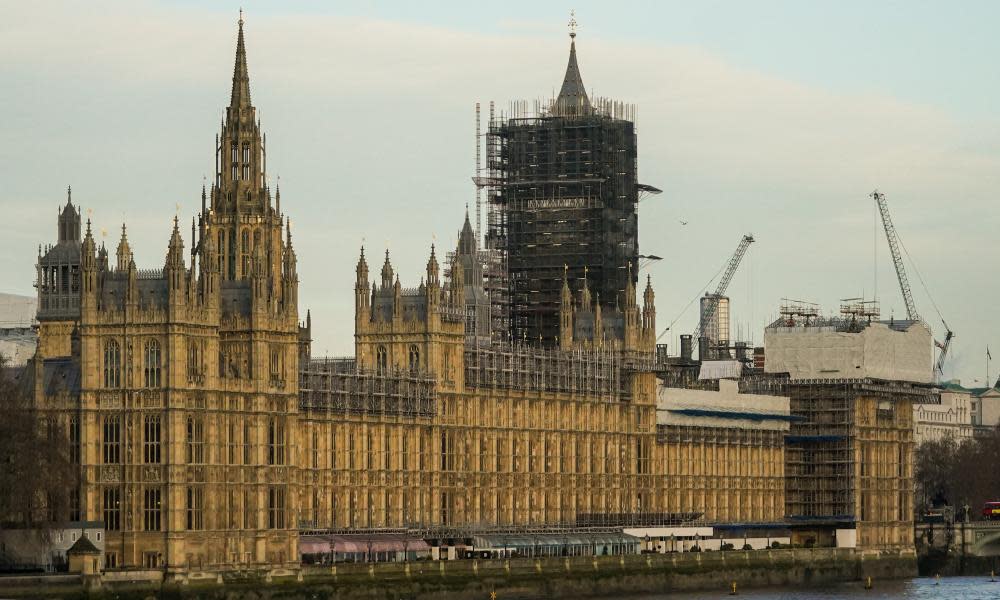Parliament could get legal powers to summon witnesses, MP says

Parliament could soon be given legal powers to summon reluctant witnesses such as Dominic Cummings and Rupert Murdoch to answer questions from MPs, according to the chair of a Commons committee.
Chris Bryant, who chairs the cross-party privileges committee, said a report due to be released this year would set out plans to compel witnesses to appear before MPs and hand over documents.
Any such move could meet resistance from No 10, according to one informed source, and could anger some Tory backbenchers as some argue that the right to compel witnesses already exists in parliamentary rules.
It follows several high-profile battles to drag potential witnesses including Mike Ashley, Philip Green and the Maxwell brothers to be questioned before House of Commons committees.
Cummings, who is now Boris Johnson’s chief adviser, was ruled to be in contempt of parliament last year after failing to appear before MPs investigating fake news.
In an interview with the Guardian’s Politics Weekly podcast, Bryant said the committee was concluding its inquiries after being asked by the house to examine how to prevent witnesses from treating parliament with contempt by lying or refusing to give evidence.
“This has been an ongoing battle over the years, because some including Dominic Cummings and many others have either refused to turn up or been deeply offensive or have lied when they’ve appeared before the committee,” the Labour MP said. “We are determined to crack this nut and so we’re doing an inquiry on that at the moment as well about the powers of parliament to make sure that people attend.”
The committee has been in talks with officials from the US Congress, New Zealand and Australia about how their legally enforced subpoenas work, and it plans to issue a report by the end of this year, according to Bryant.
“I’m certain we will end up with the view that there has to be some form of being able to force witnesses to attend and/or provide papers. The question is just how, and that’s what we’re working on at the moment,” he said.
A government source said: “We await the committee’s report and will consider carefully its recommendations.”
After Cummings refused to give oral evidence to MPs, the privileges committee acknowledged that its sanctions options were limited to recommending that the Commons issue a formal admonishment for his conduct, raising questions about the committee’s enforcement powers.
A 1999 report on parliamentary privilege said that in principle the Commons had the right to jail people who refused to attend a committee hearing after it issued an official summons. The individuals would be in contempt of parliament if they had “without reasonable excuse failed to attend before the house or a committee after being summoned to do so”.
In reality, the worst that summoned witnesses face is public criticism if they do not attend.
A series of witnesses have been criticised for delaying their appearances before committees. During the phone-hacking scandal in 2011, it took months for MPs to bring the News International executives James and Rupert Murdoch and Rebekah Brooks before MPs on the culture and media and sport committee.
MPs on the business, innovation and skills committee threatened Mike Ashley with contempt after he took several months to attend parliament to discuss the Guardian’s revelations that some Sports Direct workers were receiving effective hourly rates of pay below the minimum wage.
The businessman Philip Green was criticised by members of the same committee for taking weeks to respond to a request to give oral evidence about the collapse of BHS, which put 11,000 jobs at risk.
Erskine May, a guide to parliamentary procedure for MPs, stipulates that if the Commons votes to hold a person in contempt of the court of parliament, the Speaker can issue a warrant for that person to appear. This power was used in 1992 to force the Maxwell brothers to give evidence about pension funds.
In evidence to the committee, the Conservative peer and former Treasury select committee chair Andrew Tyrie said the committee system had been increasingly thwarted in a number of big investigations.
“If we arrive at the point where appearance is voluntary and denial of papers can be fought out endlessly in exchanges with lawyers, I think that parliament and its position as a representative of the people that is there to obtain consent will be sharply diminished. We just cannot reduce all this to an appearance of the fearful and the willing,” Lord Tyrie said.

 Yahoo News
Yahoo News 
